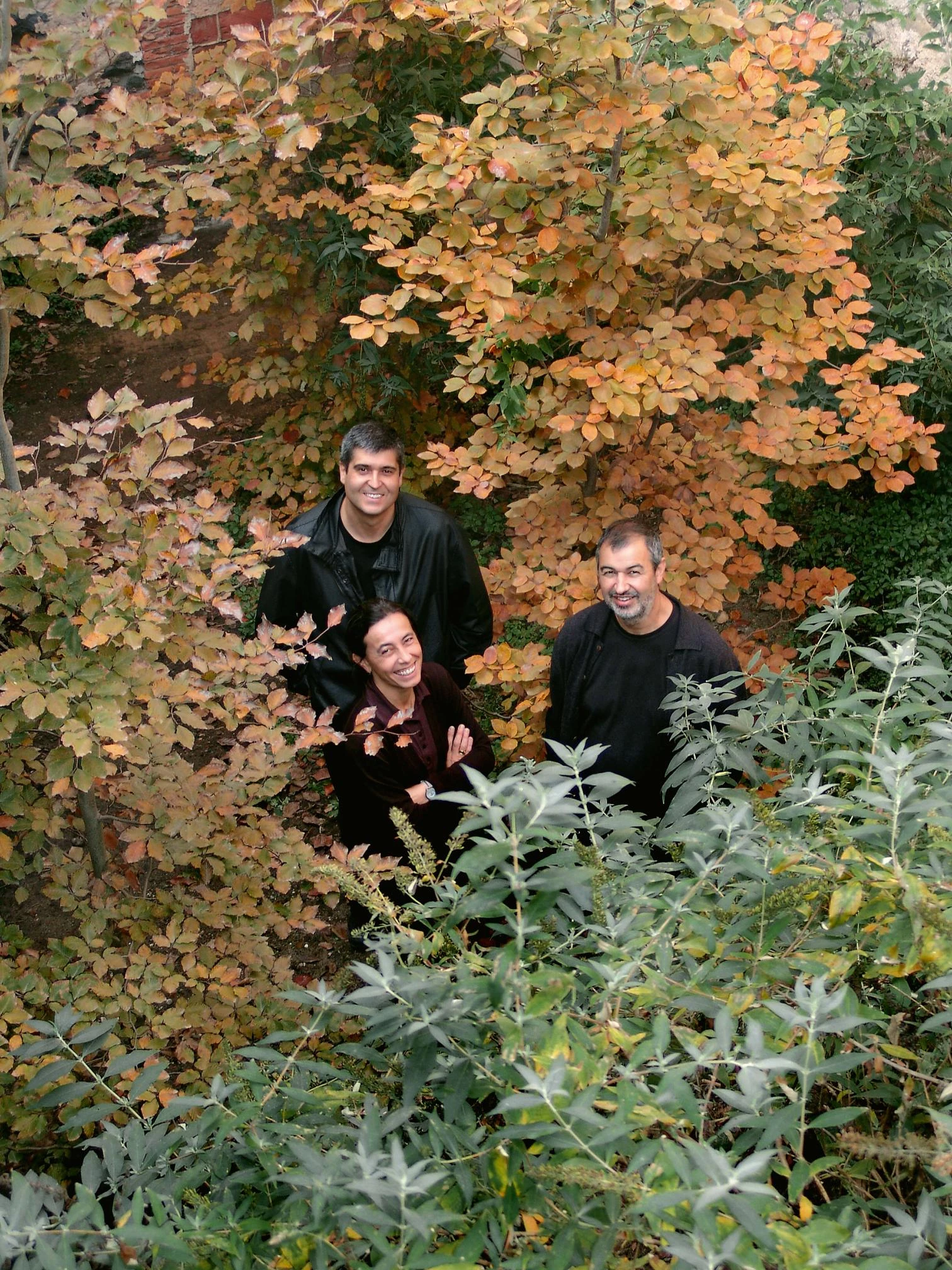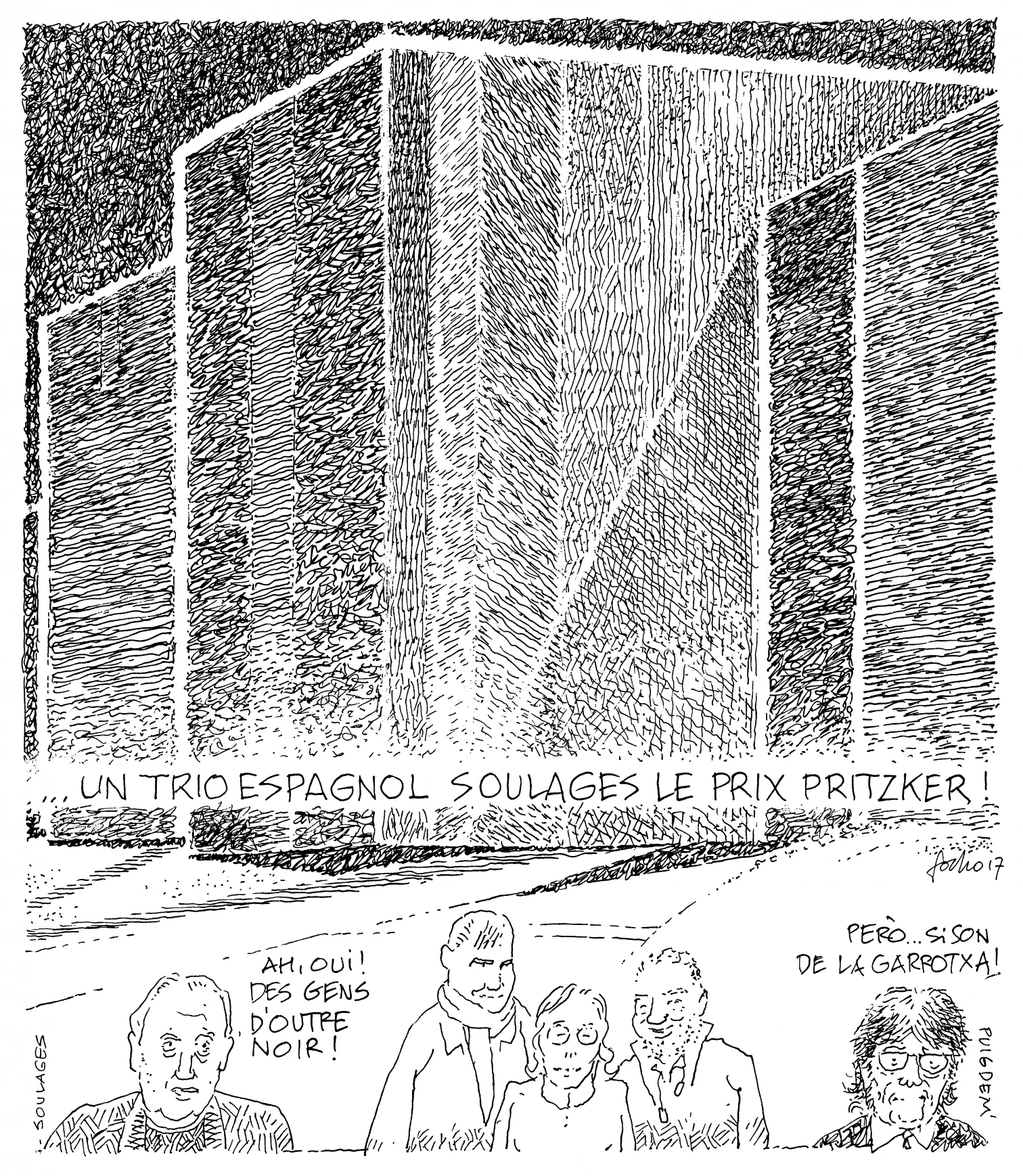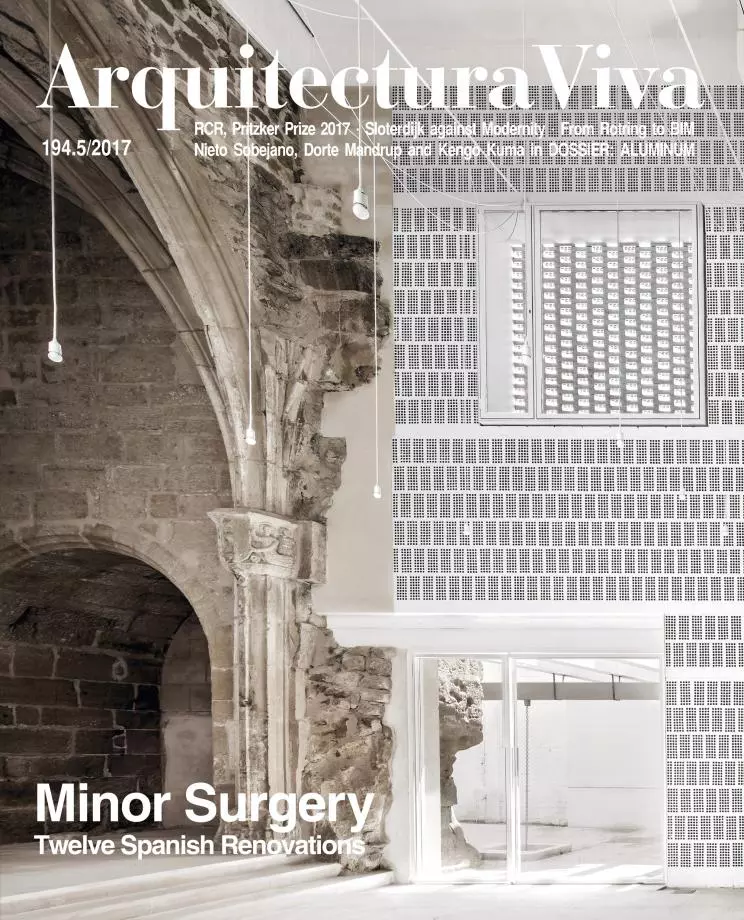
The direction that the Pritzker Prize seemed to have marked by honoring the likes of Alejandro Aravena and Shigeru Ban in the last cycles gave no inkling that this year’s winner would be RCR, a trio whose radical architecture, a priori, does not tally with the current spirit of engagement with society. RCR’s social commitment is substantial, however, albeit focused on architecture and places, which makes this new Pritzker – whose jury has been chaired by another architect who has devoted his career to working locally, Glenn Murcutt – something like a return to the ecumenical perspective that has characterized the prize since its institution in 1978. This year’s win is also good news for Spanish architecture, demoralized by the crisis and not a recipient of the coveted award since 1996, when it went to Rafael Moneo, who will from now on be accompanied on the profession’s Olympus by a troika whose approach to the discipline is quite different from the Navarrese master’s.
Founded by Rafael Vilalta, Carme Pigem, and Ramon Vilalta in 1988, RCR arquitectes has always been faithful to its place of origin, Olot, a municipality of industrial lineage nestled in the beautiful volcanic landscape of Garrotxa, where the three have created an intense, radical work environment. Their capacity to create buildings with local roots and an extreme language – what Luis Fernández-Galiano’s essay included in this issue calls “rauxa romántica” combined with “rational rigor” – is one of the points raised by the Pritzker jury in its statement: “Their work demonstrates an unyielding commitment to place and its narrative, to create spaces that are in discourse with their respective contexts.” Highlighted, too, are RCR’s ‘collaborative’ nature – this is the first Pritzker given to a threesome – and its way of “harmonizing materiality with transparency” in works sharing an “ability to intensely relate the environment specific to each site,” and all this with “deep integrity.”
RCR’s oeuvre goes from the Athletics Track of Olot (2000) to the Musée Soulages in Rodez (2014) and other projects abroad, via milestones like Restaurante Les Cols (2002) or the Espacio Público La Lira (2011). The awarding ceremony will be held on 20 May at Akasaka Palace in Tokyo.






